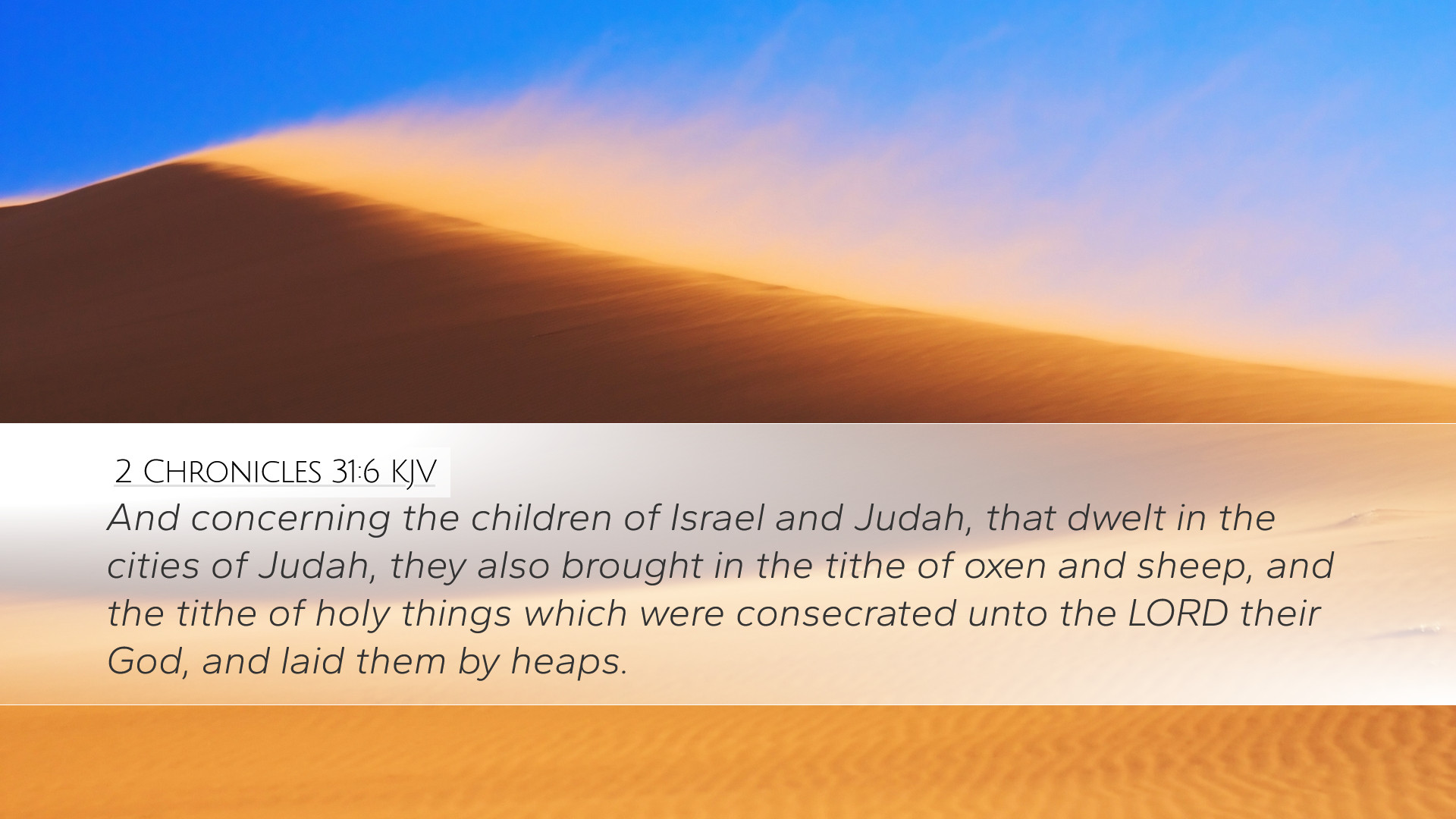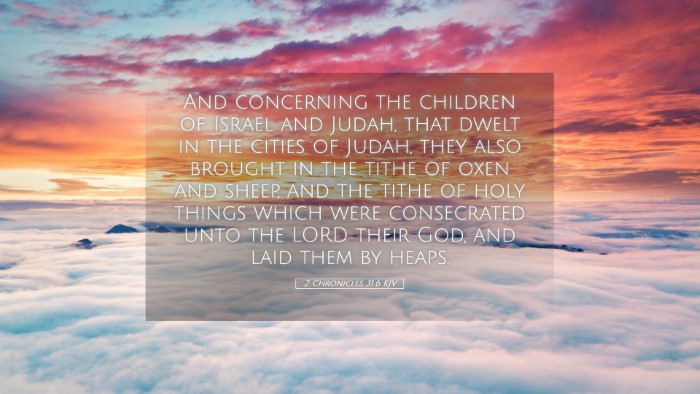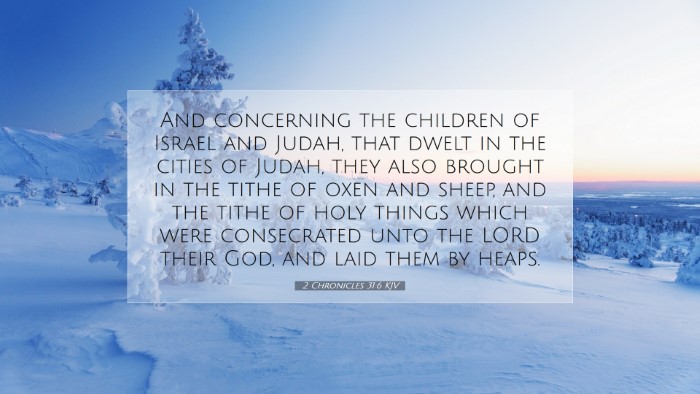Commentary on 2 Chronicles 31:6
Verse Reference: 2 Chronicles 31:6
“And the children of Israel and Judah that dwelt in the cities of Judah brought in the tithes and the offerings, and the dedicated things: they brought in the tithe of all things abundantly.”
Introduction
This verse comes at a pivotal moment in the history of Israel, marked by the reformative actions of King Hezekiah. As we delve into this verse, we can glean insights concerning worship, stewardship, and the communal nature of faith as expressed through the act of giving. This commentary draws upon the rich historical and theological contexts provided by classic biblical scholars, including Matthew Henry, Albert Barnes, and Adam Clarke.
Background and Context
The events of 2 Chronicles occur during a time of significant spiritual renewal in Judah. Following a period of idolatry and neglect of true worship under Ahaz, Hezekiah's reign instituted reforms aimed at restoring proper worship and the centrality of the temple. This setting is crucial for understanding the implications of this verse regarding the actions of the people in bringing their tithes and offerings.
Hezekiah's Reforms
Hezekiah's reforms included a call to return to Yahweh (2 Chronicles 30:6-9), highlighting themes of repentance and restoration. The people responded positively to Hezekiah's invitation to observe the Passover properly and the importance of acknowledging the Lord's provision in their lives.
Analysis of the Verse
In the verse, we observe three distinct components: the gathering of the tithes, the nature of the offerings, and the abundance in giving.
The Gathering of Tithes
The phrase "brought in the tithes and the offerings" indicates an organized effort among the inhabitants of Judah and Israel to return to the established practices of their faith. This was not a casual or haphazard giving, but a collective response to God's faithfulness.
Matthew Henry emphasizes that the term "tithe" reflects both a legal obligation and an acknowledgment of God's sovereignty over their livelihoods. He remarks that the act of giving tithes was not merely a duty but served as an expression of gratitude and faith in Jehovah's continued provision.
The Nature of the Offerings
According to Albert Barnes, "the dedicated things" refer to both the tithe and offerings set apart for sacred use. This underscores a significant theological principle: that all gifts to God must come from a place of dedication and holiness. Adam Clarke points out that these offerings, which were often products of the land or livestock, signify the people's recognition of God's ownership over all creation.
The Abundance in Giving
The phrase "they brought in the tithe of all things abundantly" indicates a generous spirit among the people. This abundant giving reflects a transformed heart, one that understands the value of participation in the divine economy through offerings. Matthew Henry notes that the abundance was not merely a result of wealth but an outpouring of gratitude as the people were compelled by God's prior blessings.
- Joyful Giving: The giving was characterized by joy and willingness, important for understanding the true spirit of giving in biblical terms (2 Corinthians 9:7).
- Collective Effort: The reference to both Israel and Judah speaks to a united front in spiritual revival—a vital factor for the success of any church community today.
- Spiritual Economy: Understanding that every material blessing can serve spiritual ends, enhancing spiritual life and worship.
Theological Implications
This verse provides a foundation for various theological themes:
- God's Covenant Faithfulness: The act of tithing is a response to God’s covenant loyalty. The people’s actions demonstrate a restoration of their relationship with God.
- Community and Worship: It emphasizes the communal aspect of faith, where the action of individuals collectively impacts the worshiping community.
- Stewardship: This passage teaches the principle of stewardship—understanding that all possessions are gifts from God to be used for His glory.
Conclusion
In conclusion, 2 Chronicles 31:6 serves as a powerful reminder of the importance of honoring God through our giving, a practice that must stem from genuine faith and dedication. Through careful examination and reflection on the text, modern-day believers can draw profound insights into worship, community, and stewardship. The legacy of Hezekiah's reign, as illustrated in this verse, challenges pastors, students, theologians, and scholars to foster a spirit of generosity in their congregations and ministries, encouraging a return to faithful and abundant giving as a testament to God's goodness.


